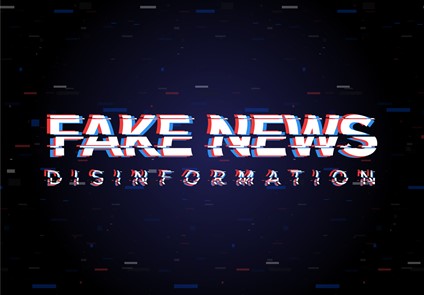How to spot fake news & misleading information

Before you vote in the municipal election, it’s important to learn about your candidates and local issues. There are lots of sources out there that mimic credible ones. What appears to be real at first glance can actually be fake images, audio, videos and text (or a combination of them).
New technologies and social media platforms can reshape the speed, quality and quantity of information we consume, where anyone can be a content creator. This negatively impacts the quality of content and can impact decisions we make. This can be damaging to public trust in government, and can pose a threat to local democracy during municipal elections.
With information overload, it can be tough to sort through what’s true and what isn’t. Disinformation, misinformation and malinformation (known commonly as “fake news”) can be complex and tricky. This is why it’s so important to follow trusted sources only.
Remember that ElectionsMarkham.ca is your official source for the latest & most reliable information about the 2025 Markham Ward 7 By-Election.
How you can protect yourself:
- Don’t rely on headlines only – watch or read full coverage
- Look at how others are reporting on a topic
- Verify the source that’s reporting on a topic
- Make sure you get information from more than one source
- Look into who the author is and what their sources are
- Check the web address of the site you’re on and make sure it’s legitimate
- Don’t assume information you receive is correct – even if it comes from familiar sources such as friends, family or colleagues
- Look at information with a critical eye – think before you share, like or comment
Ask yourself the following questions when you are viewing content:
- Does it cause an emotional response?
- Does it make a bold statement on a controversial issue?
- Is it an extraordinary claim?
- Does it contain clickbait?
- Does it have information that’s within context?
- Does it use small pieces of true information that are exaggerated or distorted?
- Has it spread virally on unreliable or loosely vetted platforms?
What do these terms mean?
- Misinformation: False information that is not intended to cause harm
- Disinformation: False information that is intended to manipulate, cause damage or harm
- Malinformation: Stems from the truth but is often exaggerated in a way that misleads and causes potential harm
Sources: EUvsDisinfo, Canadian Centre for Cyber Security, and Disinfowatch

